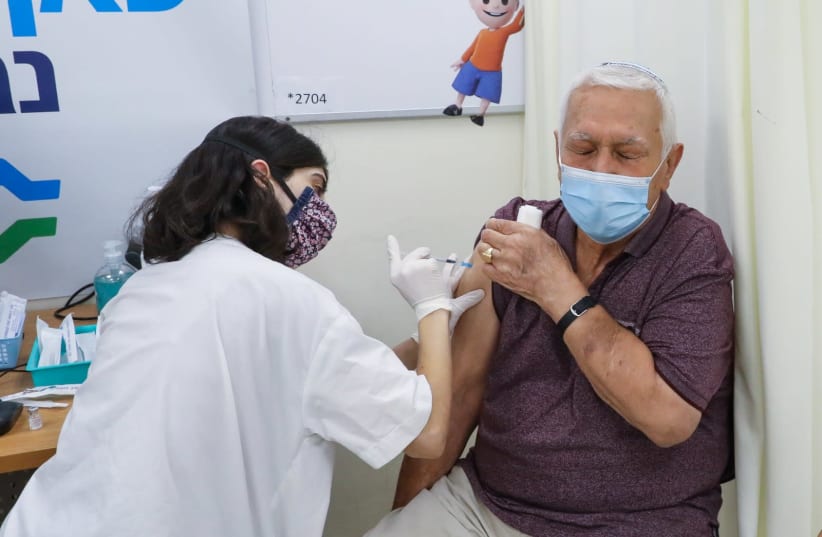The coronavirus cabinet is scheduled to meet on Tuesday to discuss new restrictions against the backdrop of an increase in morbidity in Israel. The Health Ministry might recommend that the ministers tighten theGreen Pass system.
“We are considering tightening the green pass and additional measures as much as possible, without harming economic activity,” Health Ministry Director-General Prof. Nachman Ash said in a press briefing on Monday.
The outline, which currently grants access to venues and activities only to people who are fully vaccinated, recovered or who underwent a coronavirus test in the previous 72 hours, applies only to gatherings largerthan 100 people.
According to reports in Israeli media, among the steps that the ministers will consider is to bring back a full green pass system, which applied to several activities regardless of the number of participants, and to cancel the current exemption for children under 12.
In addition, mandatory masks for large gatherings outdoors, a cap on gatherings and limits on the number of workers present in public offices might be discussed.
According to the reports, Prime Minister Naftali Bennett is starting to consider the possibility of imposing a lockdown during the Jewish holidays in September, if general and serious morbidity continue to follow a progression similar to the current one.
In the briefing, Ash described the situation as worrisome.
2,114 new cases were identified on Sunday, with some 80,000 tests processed. The number is lower than the peak of the wave reached on Friday, when more than 2,400 new virus carriers were identified, with almost 100,000 tests processed. Typically, less tests are performed during the weekend and therefore the data on Sunday is still influenced by this factor.
Another 2,441 cases were recorded on Monday as of 6 p.m.
The number of serious patients stood at 217, five more than the previous night. Of those, some 43 were on ventilators. In addition some ten people succumbed to the virus in 24 hours, the highest daily death toll since April.
At the same time, Ash described as positive public response to the new vaccination campaign to give people over 60 a booster.
Some 45,000 Israelis over 60 or who are immunocompromised have already received the third coronavirus vaccine.
Israel launched a campaign on Friday to administer a new shot to people whose immunity has been considered waning, in a rush to prevent the country’s fourth wave from escalating further.
In the past few weeks, over half of the new cases have been recorded among people who were fully vaccinated. This helped to keep the rise in serious morbidity significantly more limited than that of general morbidity. However, about two-thirds of patients in serious conditions – 212 as of Monday morning – were fully inoculated, most of them elderly who were the first to get jabbed in January.
The data prompted authorities to pursue the new vaccination campaign, with the goal of giving hundreds of thousands of Israelis a booster within10 days.
Ash said that although it will probably take some two or three weeks to see the effect of the third shot on morbidity, a person can expect to have a significant increase in the level of antibodies within a few days.
Also on Monday, Education Ministry Director-General Yigal Slovik said that the ministry’s goal is to start testing 1.6 million Israeli children for the presence of coronavirus antibodies in the upcoming days.
“This mapping will allow hundreds of students to be in the classrooms without the need for isolation, as they will be eligible for a green pass,” Slovik told the Knesset Education Committee, referring to the situation that if students come into contact with a verified case, they are required to quarantine according to current rules.
“I believe that toward the end of next week, we will be able to start this national operation. We reached an agreement with the Health Ministry this morning.”
The operation will target children attending preschool and up to sixth grade, who are not eligible for a vaccine.
Slovik also said that they are continuing to work on a special quarantine outline for the education system.
Last week, Ash rejected the Education Ministry’s proposal to release children who came in contact with a virus carrier to leave isolation after 48 hours and a negative test.
Ash confirmed in the press briefing that they are still trying to work out a solution.
He said that the general plan will focus on guaranteeing in-person learning as much as possible, and that in locations with a high level of morbidity, classes might be split.
